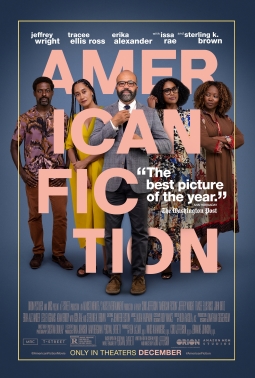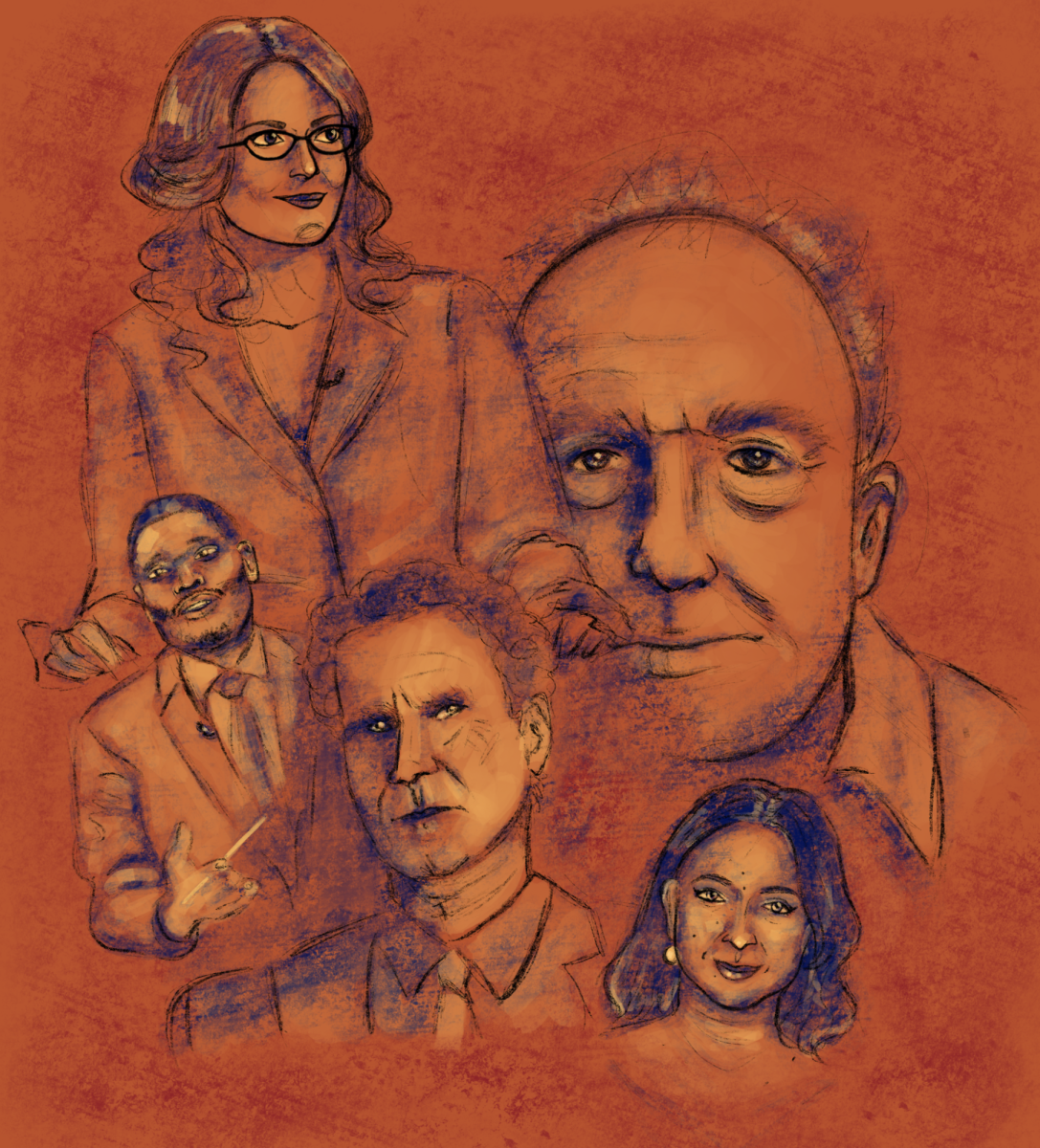First up in the Best Picture category is Cord Jefferson’s directorial debut “American Fiction.” The film is an adaptation of the 2001 novel “Erasure” by Percival Everett and follows writer Thelonious “Monk” Ellison (Jeffrey Wright) as he navigates his discontent with the popularizing and stereotyping of the Black experience in literature. The plot develops into a juggling act of Monk’s reviving his writing career and his melancholy family issues. Monk creates a widely successful novel, “My Pafology” (later renamed “Fuck”), penned under the pseudonym Stagg R. Leigh, in order to criticize other authors and media that use Black hood stereotypes to convey a moving message to audiences. In his personal life, Monk encounters family death, Alzheimer’s, and rocky sibling relationships.
The two central plot lines seemed distant, as the satirical novel writing moments seemed more engaging than those of the family drama. However, the family drama is a running example of the kinds of stories Monk desires to be written about Black experiences; one that doesn’t relegate Black stories to shootings and police encounters. That being said, the two plotlines require more resolution in the relationships in Monk’s professional life with other authors and personal life with the hint of romance strung throughout the film.
In regards to the five Oscar nominations “American Fiction” is up for, they’re all deserved, although it’s going to be a tough year for “American Fiction” to stick out against the competition. Jeffrey Wright and Sterling K. Brown’s performances and nominations might not be what is getting the media buzz, but they were impressive enough to hopefully get more roles sent their way in the future. Wright’s leading performance truly encapsulated the comically sad “three-legged dog” demeanor Monk is labeled with while Brown’s supporting performance as Monk’s flawed but loving sibling gave depth to Monk’s complicated relationship with his family.
The nomination in Best Original Score and Best Adapted Screenplay are where “American Fiction” could potentially edge out the competition. While not as inventive as other nominees, the score combined with transitioning shots of Cape Cod greenery is what really ties “American Fiction” together. The light jazz and funk influence throughout the film combined with the more tense moments heightened by melancholy orchestral arrangements bring emotion into the parts where the audience was meant to laugh or cry.
Furthermore, director and writer Cord Jefferson is no stranger to the realm of comedy and satire given his experience writing on both “The Good Place” and “Succession,” so the Best Adapted Screenplay award could be an underdog story for “American Fiction.”
As for Best Picture, “American Fiction” is going to have a tough time beating out the big names in the category. Instead, the solidity of films in the category standing alongside and including “American Fiction” will help support the argument that 2023 was one of the best years for cinema in recent history.












